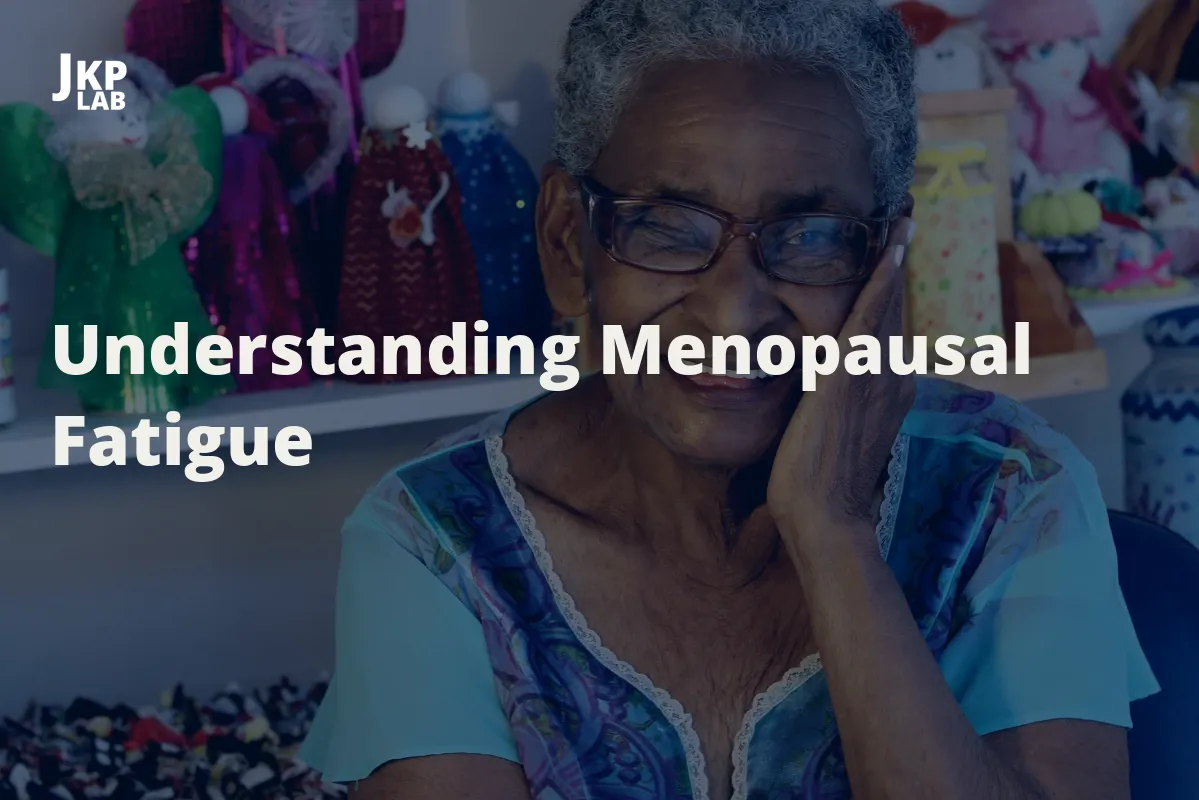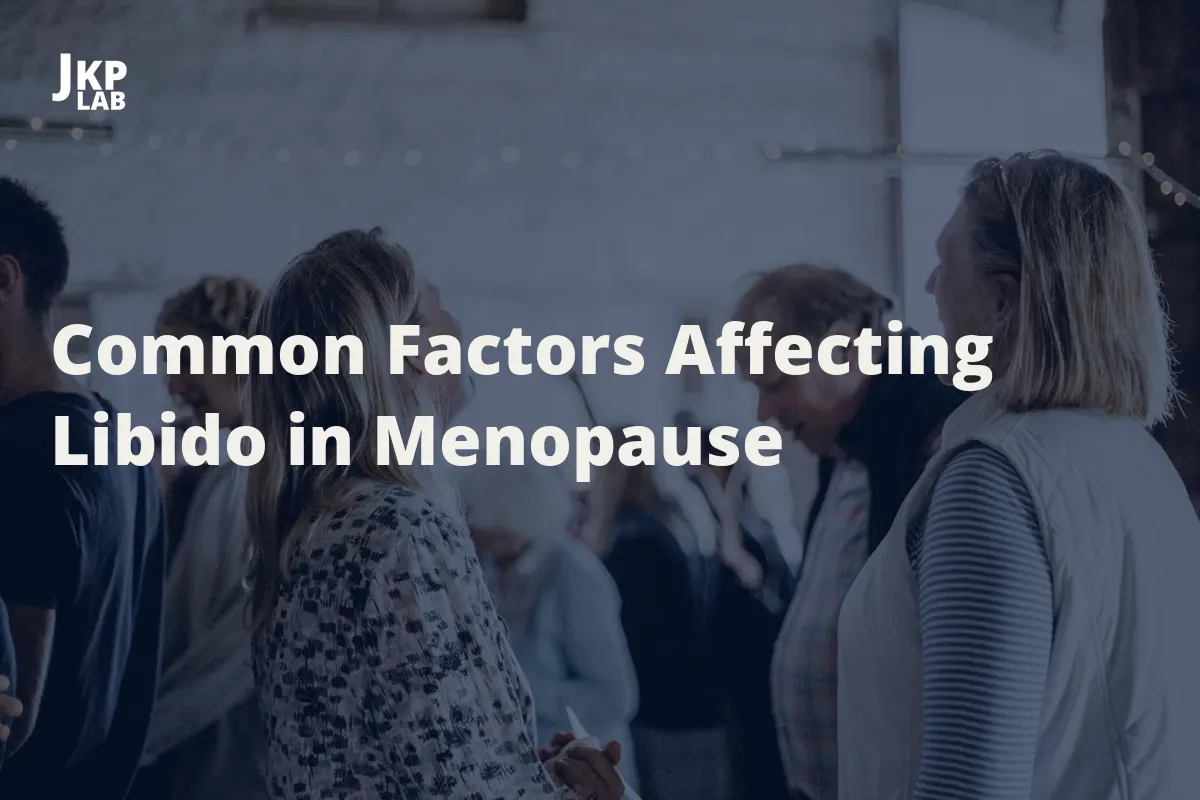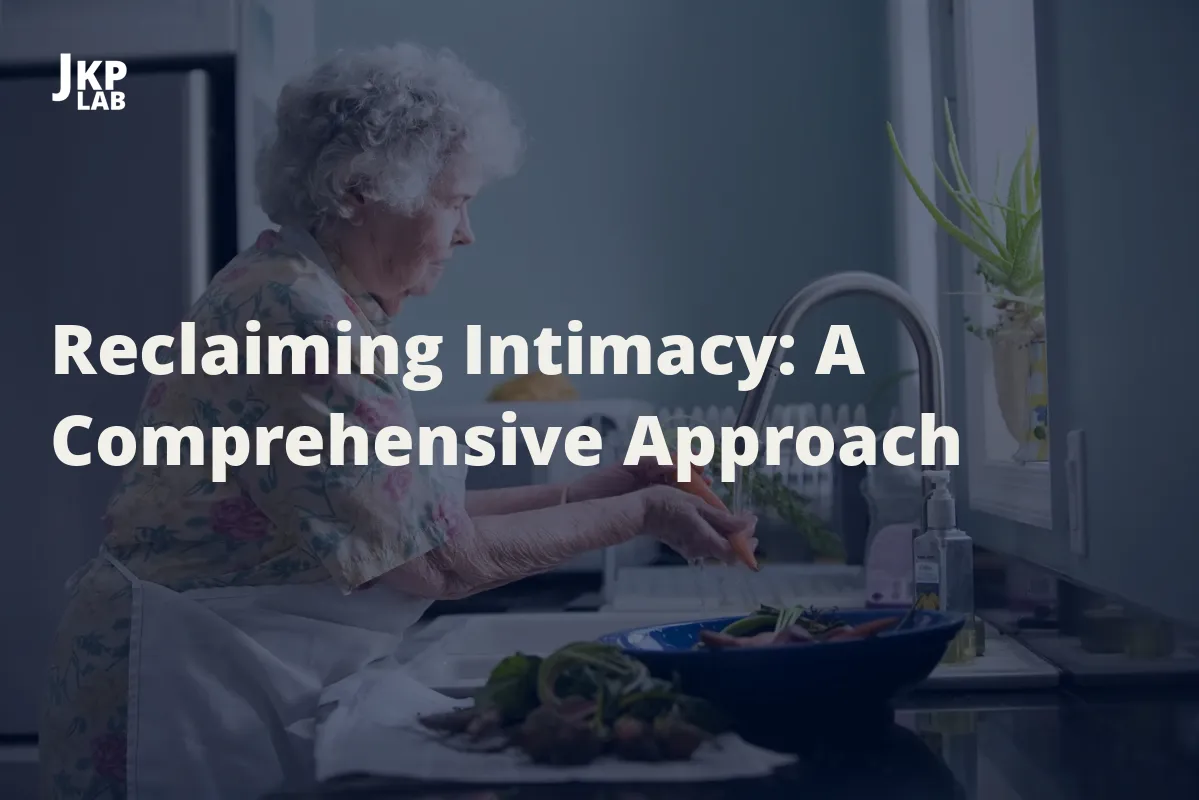
Understanding Menopausal Fatigue
When we talk about menopause, it’s essential to understand the changes a woman’s body undergoes during this natural phase of life. Menopause marks the end of a woman’s reproductive years and is often associated with various symptoms. Among the most prevalent and overlooked symptoms is menopausal fatigue.
What is Menopausal Fatigue?
Menopausal fatigue refers to the overwhelming sense of tiredness or exhaustion that many women experience during menopause. Unlike the regular tiredness that one might feel after a strenuous activity, this fatigue isn’t easily remedied by a good night’s sleep. It’s persistent and can interfere with daily activities, affecting a woman’s overall quality of life.
Why Does It Happen?
Menopausal fatigue results from hormonal fluctuations, specifically a decline in estrogen levels. Estrogen plays a vital role in energy production and mood regulation. When its levels decrease, a woman can feel more tired and less motivated. Additionally, other symptoms of menopause, such as night sweats or insomnia, can exacerbate this fatigue.
The Broader Picture of Menopause
While fatigue is just one of the many symptoms women face during menopause, it’s crucial to consider the broader context. Menopause is a complex transition that affects various aspects of a woman’s health, both physically and emotionally. For a deeper understanding of menopause and all the changes it brings, readers can refer to the comprehensive guide on menopause here .
Impact on Daily Life
Persistent fatigue can disrupt daily routines, making even mundane tasks seem challenging. It’s not just about feeling sleepy; it’s about experiencing a drop in energy levels, motivation, and often, the enthusiasm for activities once enjoyed. As one can imagine, this type of fatigue can have ripple effects, affecting work, social engagements, and personal relationships.
In the next section, we’ll delve into the intricate relationship between menopausal fatigue and another significant aspect of a woman’s life – her sex drive. It’s essential to recognize the interconnectedness of these symptoms to approach them with informed and comprehensive solutions.

The Connection Between Fatigue and Sex Drive
Menopause brings about a slew of changes, both visible and hidden. Among the many challenges women face during this phase, the link between fatigue and reduced sex drive is noteworthy.
The Role of Energy in Intimacy
Sexual desire, often termed as libido, isn’t just about physical attraction or emotional connection. It’s also closely tied to a person’s energy levels. When someone is constantly feeling tired or drained, the last thing on their mind might be intimacy. This isn’t due to a lack of affection or connection with their partner but primarily because the energy required for such engagements is lacking.
Hormonal Changes: A Double-Edged Sword
Estrogen, a primary female hormone, decreases during menopause. This decline not only results in fatigue, but also impacts libido. Estrogen plays a vital role in maintaining vaginal health, lubrication, and overall sexual health. Its decrease can lead to physical discomfort during intercourse, further diminishing the desire for intimacy.
Psychological Aspects
It’s not just about the physical. The emotional and psychological toll of menopausal fatigue can’t be ignored. When a woman is constantly tired, she might feel less confident, less connected to her body, or even less attractive. Such feelings can inadvertently create a mental barrier to intimacy, further reducing her sex drive.
Sleep Disturbances
Often, menopausal women experience sleep disturbances due to night sweats, hot flashes, or anxiety. A disrupted sleep pattern directly contributes to fatigue, creating a cycle of tiredness and reduced desire for any activity, including intimacy.
It’s Not Just About Age
A common misconception is that a decline in sex drive is solely due to aging. While age can play a role, it’s essential to differentiate between natural aging and the specific effects of menopause. Many women in their post-menopausal years enjoy a fulfilling intimate life, indicating that age, in isolation, isn’t the sole determinant of libido.
In the upcoming sections, a closer look will be taken at other factors affecting libido during menopause and natural ways to navigate and overcome these challenges.

Common Factors Affecting Libido in Menopause
Menopause, as established, is a period of significant change. While fatigue is a major contributor to diminished sex drive, there are other factors at play during menopause that can further affect libido.
Hormonal Fluctuations
Estrogen isn’t the only hormone that sees a decline during menopause. Progesterone and testosterone also decrease, and these hormones play key roles in regulating a woman’s mood, energy, and libido. The trio of declining hormones can cause a significant drop in sexual desire.
Vaginal Changes
The decrease in estrogen during menopause can lead to vaginal dryness and thinning of the vaginal walls, termed vaginal atrophy. This can result in discomfort or pain during intercourse, making intimate encounters less appealing.
Emotional and Psychological Factors
Menopause can be a time of emotional turbulence. Feelings of sadness, irritability, anxiety, and low self-esteem can arise. These emotions, coupled with body changes like weight gain or hair thinning, might make a woman feel less connected to her sexual self.
Medications and Other Conditions
Often, women going through menopause might be on medications for other health conditions, such as hypertension, diabetes, or depression. Some of these medications can have side effects that reduce libido. It’s crucial to be aware and consult a healthcare provider if one suspects medication is impacting her sex drive.
Lifestyle Choices
Lifestyle plays a vital role in sexual health. Excessive alcohol consumption, smoking, or lack of exercise can further lower libido. Adopting a healthier lifestyle can be one way to mitigate some of these effects.
Relationship Dynamics
Changes in relationship dynamics or issues with a partner can also impact desire. Effective communication, understanding, and counseling can play pivotal roles in managing such issues.
Stress
It’s a well-known fact that stress can dampen sexual desire. With menopause comes potential sources of stress, such as body changes, health concerns, or shifts in family dynamics, all of which can impact libido.
Recognizing these factors is the first step in understanding the broader picture of menopausal changes. By acknowledging them, women can seek tailored solutions to enhance their intimate lives during this phase.

Natural Solutions to Boost Energy and Libido
Navigating the changes brought on by menopause requires an integrated approach. Fortunately, there are natural solutions that can help alleviate some of the symptoms, especially when it comes to boosting energy and reigniting libido.
Dietary Adjustments
The right nutrition can work wonders for the body. Incorporating foods rich in phytoestrogens, like soy products, flaxseeds, and sesame seeds, can help balance hormones. Additionally, foods high in zinc, such as pumpkin seeds and oysters, can potentially boost libido.
Regular Exercise
Engaging in regular physical activity not only helps in maintaining a healthy weight but also boosts endorphin levels. Whether it’s brisk walking, yoga, or aerobics, finding a preferred exercise routine and sticking to it can help elevate mood and energy levels.
Herbal Remedies
Several herbs are renowned for their ability to support women’s health during menopause. Black cohosh, for instance, has been used to treat hot flashes and improve mood. Similarly, maca root is believed to enhance libido and reduce anxiety.
Stress Management Techniques
Since stress plays a significant role in reducing libido, adopting stress management techniques becomes crucial. Practices like meditation, deep breathing exercises, and journaling can help in keeping stress levels in check.
Natural Lubricants
For those facing vaginal dryness, natural lubricants like coconut oil or aloe vera gel can provide relief and make intimate moments more comfortable.
Sleep Hygiene
Prioritizing sleep hygiene can make a huge difference. Keeping a regular sleep schedule, ensuring a dark and quiet bedroom environment, and avoiding caffeine or electronics before bedtime can promote better sleep quality.
Stay Connected
Fostering emotional connections, be it with a partner, friends, or support groups, can have profound effects on overall well-being and sexual health. Engaging in open conversations, seeking counseling, or merely spending quality time together can nurture these connections.
Incorporating these natural solutions into daily life can help women navigate menopause with more ease and confidence. The beauty of these approaches lies in their simplicity and accessibility, making them a preferred choice for many.

Introducing Spanish Fly Pro
In the quest for natural solutions to enhance sexual well-being during menopause, Spanish Fly Pro emerges as a promising option.
What is Spanish Fly Pro?
Spanish Fly Pro is a dietary supplement designed to enhance sexual arousal in both women and men. It is rooted in the ancient legend of the Spanish fly, but today’s product is a blend of safe and effective ingredients tailored for modern needs.
The Ingredients
Spanish Fly Pro boasts a combination of herbs and natural compounds known to stimulate arousal and improve sexual function. Unlike the historical notion of the Spanish fly, which was hazardous, this product is formulated with safety and efficacy in mind.
Benefits for Menopausal Women
Menopausal women can particularly benefit from Spanish Fly Pro due to its unique blend of ingredients. Here’s how:
-
Boosted Libido: The product works by increasing blood flow to intimate areas, thus heightening sensitivity and arousal.
-
Enhanced Mood: Some ingredients in Spanish Fly Pro have mood-enhancing properties, which can be particularly beneficial given the mood fluctuations often experienced during menopause.
-
Improved Stamina: Besides boosting sexual desire, Spanish Fly Pro can also enhance stamina, making intimate encounters more enjoyable and less tiring.
-
Natural Composition: For those wary of synthetic medications, Spanish Fly Pro offers a natural alternative without common side effects.
Easy to Use
Spanish Fly Pro is designed for convenience. It typically comes in liquid form and can be easily mixed with a drink. This simplicity makes it a practical choice for those seeking a quick and natural boost to their intimate moments.
A Word on Safety
Like with any supplement, it’s always wise to consult a healthcare provider before using Spanish Fly Pro, especially if one is on other medications or has health concerns. It’s reassuring to note, however, that the product prioritizes user safety and is formulated with carefully chosen ingredients.
Exploring options like Spanish Fly Pro can offer menopausal women a holistic approach to maintaining a fulfilling intimate life. It’s not just about treating symptoms; it’s about enhancing overall quality of life.

How Lifestyle Choices Impact Sex Drive
Every individual’s day-to-day choices can have a more profound impact on their overall well-being than one might think. When discussing libido, especially during menopause, these choices play a significant role.
Nutrition Matters
The saying “You are what you eat” rings true when it comes to sexual health. Consuming a balanced diet with essential vitamins and minerals ensures the body functions optimally. Foods rich in Omega-3 fatty acids, like salmon and walnuts, can promote blood flow, benefiting sexual health.
The Power of Physical Activity
Regular exercise not only keeps the body in shape but also boosts mood by releasing endorphins. Whether it’s a dance class, jogging, or even gardening, staying active can enhance feelings of well-being and subsequently boost libido.
Avoiding Toxins
Certain habits, such as excessive alcohol consumption or smoking, can hamper blood flow and hormonal balance. Avoiding or limiting these can significantly improve sexual health and desire.
Mindfulness and Relaxation
In today’s fast-paced world, finding moments of calm is essential. Practices like meditation, tai chi, or even simple deep-breathing exercises can alleviate stress, a known libido reducer.
Social Connections
Maintaining social ties isn’t just good for emotional well-being. Feeling connected and understood can lead to improved self-esteem and body image, both contributing factors to a healthy sex drive.
Sleep’s Role
A good night’s sleep rejuvenates the body and mind. Quality sleep ensures hormonal balance and reduces stress, both of which are essential for a healthy libido.
Limiting Medications Where Possible
Some medications, especially antidepressants or blood pressure medications, might have a side effect of reducing libido. It’s important to discuss with a healthcare provider if one feels their medicine is impacting their sex drive.
Incorporating healthy lifestyle choices can go a long way in not just maintaining but also enhancing sex drive during menopause. Making informed decisions about daily habits can ensure that the journey through menopause is not just bearable but enjoyable. For a comprehensive understanding of menopause, readers can check the detailed guide on the subject here .

Reclaiming Intimacy: A Comprehensive Approach
The journey through menopause, though challenging, offers women a chance to rediscover and redefine their relationship with their bodies and partners. Intimacy, both emotional and physical, is achievable and can be deeply rewarding with the right tools and mindset.
Open Communication
Creating a space for open dialogue with partners can lead to understanding and mutual support. Sharing feelings, fears, and desires can rebuild bridges that may have been affected by the changes of menopause.
Educate and Explore
Understanding the body’s changes can help in seeking out solutions tailored to specific needs. Being informed means being empowered, whether that involves seeking medical advice, trying out supplements like Spanish Fly Pro, or adopting natural solutions.
Experiment and Rediscover
Every stage of life offers an opportunity for growth and new experiences. Menopause is no different. Experimenting with new forms of intimacy or exploring previously uncharted territories in the bedroom can lead to newfound pleasure and connection.
Prioritize Self-Care
Self-love and self-care go hand in hand. Whether it’s treating oneself to a spa day, reading a book, or indulging in hobbies, taking time for oneself can boost self-esteem and reignite the inner spark.
Seek Support
There’s no need to navigate the challenges of menopause alone. Joining support groups, seeking therapy, or merely confiding in friends can offer solace and guidance.
Menopause, while a significant transition, is but one chapter in the rich tapestry of life. By adopting a comprehensive approach, women can reclaim and even enhance their intimacy during this phase, ensuring that their relationships and personal well-being flourish. With the right mindset, tools, and support, the possibilities for growth and joy are boundless.